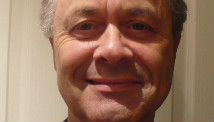An Internet entrepreneur in a legal battle with the U.S. Department of Justice over his file-sharing and cloud storage site is at it again, and this time he says his new website is legal.
Kim Dotcom, the man behind the file-sharing site Megaupload, launched a new site called Mega (mega.co.nz), Sunday in New Zealand, which allows users to upload up to 50 gigabytes worth of files and store them, and share them — in a limited way — with other users. The amount of storage space increases if users sign up for a premium account.
The twist is that this time the company doesn’t know what’s in the files, because they are encrypted. The encryption keys are in the hands of the user only.
It is possible to share the files by providing a URL with the password embedded in it, but in this case as well, only the person accessing the file can see the data.
For users, it could be a great way to store confidential files, and it’s a larger space initially than Dropbox, which starts its free service at 2GB, or Google Drive at 5GB. That said, there are some caveats.
First is the encryption. If you lose the password, you won’t be able to recover it — period.
Then there is the question of the site’s legality. Kim Dotcom has told the BBC that “This startup is probably the most scrutinized by lawyers in Internet history.”
That gets into Kim Dotcom’s legal problems with the U.S. government. Dotcom funded Megaupload in 2005 as a place for people to store files on the Internet. The big difference between it and other file storage services was the amount of space offered — 200 gigabytes. Users could share files with each other or with the general public.
The Motion Picture Association of America and the Department of Justice saw a massive copyright abuse system. The DoJ said in its indictment that Megaupload’s business model, which rewarded popular downloads with cash payments, encouraged people to upload copyrighted content.
Dotcom and Megaupload argued that they complied with takedown notices. Either way, in January of last year, police raided Dotcom’s New Zealand home, arrested him, and shut down Megaupload. The U.S. government then requested he be extradited. A hearing to determine whether that happens is due in March.
In the wake of the arrest, hacktivist group Anonymous staged a series of distributed denial of service attacks.
Because the new site is encrypted —Mega says it doesn’t even have the key, because the key is the password to the site known only to the user — Dotcom can legitimately say he has no idea what is being uploaded. Generally, copyright violations apply to people who know that their site is being used to pirate content and don’t make a good faith effort to remove it in the wake of takedown requests (which fall under the Digital Millennium Copyright Act, or DMCA).
A big part of the legal argument between Dotcom and the DoJ is whether he made that effort and whether he deliberately encouraged thesharing of copyrighted content. The DoJ says the company didn’t because the files were still on their servers and if there were multiple copies, the links all had to be taken down individually.
It’s still possible that the DoJ will go after Dotcom’s new website Mega, though, because by setting the site up so that he can’t know what users are doing, he also leaves himself open to the charge that he’s offering a safe haven for copyrighted works. On top of that, one of the terms of Dotcom’s bail in New Zealand is that he cannot start any new businesses until the criminal copyright case in the U.S. is resolved, according to the Economist.
So if you’re thinking that you might want to use the new Mega site, be aware that it could be forced to shut down if Dotcom’s lawyers haven’t covered all the angles.
This story was provided by TechNewsDaily, sister site to LiveScience.
Copyright 2013 LiveScience, a TechMediaNetwork company. All rights reserved. This material may not be published, broadcast, rewritten or redistributed.
Science News Headlines – Yahoo! News
Title Post: Mega 101: Everything You Need to Know
Url Post: http://www.news.fluser.com/mega-101-everything-you-need-to-know/
Link To Post : Mega 101: Everything You Need to Know
Rating:
100%
based on 99998 ratings.
5 user reviews.
Author:
Thanks for visiting the blog, If any criticism and suggestions please leave a comment


